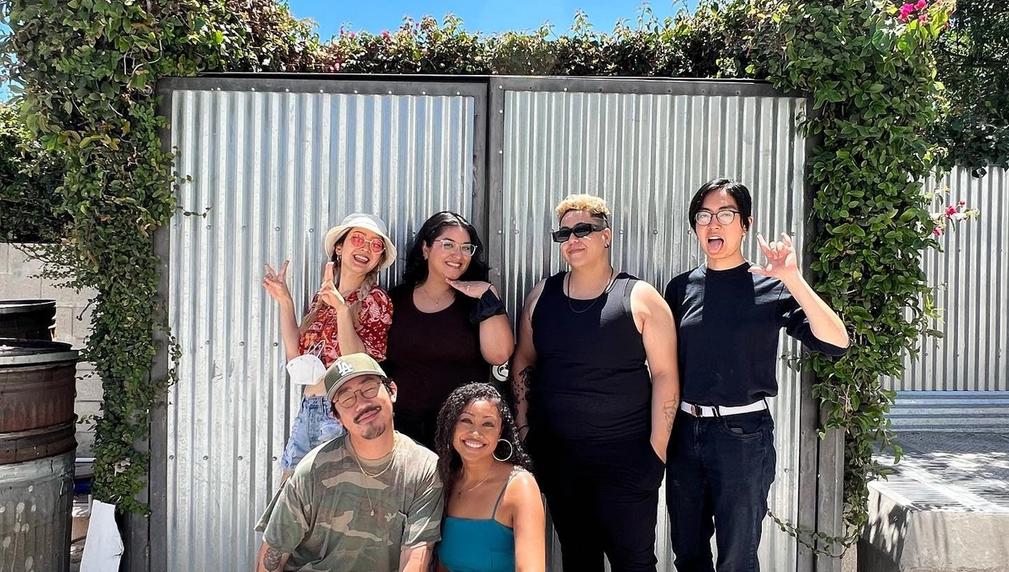Bond and Bloom: Transformation through Healing
Bond and Bloom is a series of healing justice workshops and retreats to strengthen networks, skills and resilience among organizers, activists, and community members. Featuring trauma-informed healing, mindfulness, art therapy, and intergenerational storytelling, the aim is to combat the isolation and burnout in the fight against systemic injustice and oppression while empowering participants with the tools to sustain their work and well-being.

What is the primary issue area that your application will impact?
Social support networks
In what stage of innovation is this project, program, or initiative?
Pilot or new project, program, or initiative (testing or implementing a new idea)
What is your understanding of the issue that you are seeking to address?
Mental health challenges and loneliness are epidemics in the U.S., and are prevalent issues in organizing and movement spaces. Many community organizing efforts fail to keep going because of high work demand, as well as lack of skills in navigating harm, conflict management, and trauma responses. Burnout leads to hurt relationships, hopelessness, and leaving activism. For our work to be sustainable, we need to resource our organizers with the tools for community care, self care, and healing. Traditional organizing has centered around the material needs of people (food, shelter, clothing, etc.) while relegating non-material needs (like care, healing, community) to the side. A new model of organizing requires that we meet our community’s material and non-material needs and that starts with ensuring that our organizers and community leaders have the tools to stay engaged in their work in a sustainable manner.
Describe the project, program, or initiative this grant will support to address the issue.
Bond and Bloom will offer 6 workshops to the larger community who are part of organizing or movement spaces, and will include trauma-informed care, self-care practices, collective healing, systemic trauma, and politicized healing (understanding the intersections of personal trauma and systemic oppression, and how collective healing can challenge hyper-individualism). The sessions will be interactive with a combination of workshops, group discussions, experiential activities, and reflective exercises to practice and embody healing justice. We will then bring together a cohort of 6-10 BIPOC leaders in a series of 2 workshops and 1 weekend retreat to equip them with the tools necessary to sustain their work in serving their communities. The weekend retreat will include deep healing sessions, art therapy, movement practices, action planning around integrating healing justice strategies into their organizations, and community meals with a structured itinerary that will include reflections and integration. Cohort participants will be chosen based on their impact in their communities and how they are impacted by systems of inequality and oppression. Through the duration of the grant period, cohort participants will be eligible for reduced-cost individual therapy sessions with licensed therapists. We see this as essential in integrating material from the workshops into their daily practice, which can optimize the impact of then shifting their respective organizational cultures.
Describe how Los Angeles County will be different if your work is successful.
The outcomes of the Bond and Bloom workshops include giving participants tools and strategies for self and community care, a deeper understanding of healing justice principles and application in daily life, and stronger networks among participants to foster long-term connections. The first step in integrating Healing Justice practices is to understand the impacts of systemic oppression and injustice on mental health, and to then build strategies for collective resilience and resistance. Participants will feel rejuvenated, with a renewed sense of purpose and commitment for their organizing work. They will also have an action plan on how to integrate healing justice principle into the culture of their respective organizations. In the long term, we will shift the narrative of organizing focused only on reacting to problems and crises, and to prioritize the process as much as the outcome of our work.
What evidence do you have that this project, program, or initiative is or will be successful, and how will you define and measure success?
Number of participants in community workshops. Pre and post survey of workshop participants. Number of applications to join the Bond and Bloom BIPOC Organizers cohort. Pre and post survey of year-long participation for cohort members.
Approximately how many people will be impacted by this project, program, or initiative?
Direct Impact: 130.0
Indirect Impact: 2,000.0